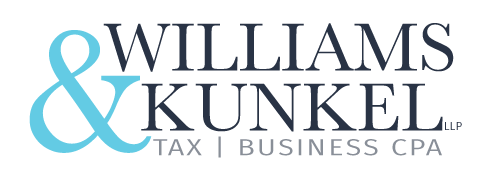Are you getting a tax refund this year? Tax refunds can help maintain the positive momentum for achieving money goals. (DFW Accountant Pros: What To Do With Your Refund)
Depending on where you’re at in your financial journey, a tax refund can be a blessing. You can pay down debt or tuck away some cash for the future.
If you’re searching for ways to put your refund to good use, there are plenty of ways to do it:
Pay Off High-Interest Debt
Consider putting your entire refund towards these kinds of debt:
- Credit card balance
- Personal loans
- Medical bills
Personal loans typically have interest rates as above 10% APR. It’s not uncommon for credit card interest rates to exceed 20% APR. Your monthly interest charges are easily higher than the potential passive income you can earn from investing or a high-yield savings account.
Having one less monthly payment means you instantly boost your disposable income.
Let’s not forget that unpaid debt can negatively affect your credit score. Paying off debts can decrease your credit utilization ratio and debt-to-income ratio. Focusing on accounts that are past due or in collection status may also have a positive effect on your credit.
Boost Your Emergency Fund
Hopefully, you have some cash set aside into an emergency fund to cover unexpected expenses. If not, priority #1 for your tax refund should be starting an emergency fund.
If your tax refund goes directly into your checking account, transfer it into a separate interest-bearing savings account.
Building up your fund can be an ongoing process to reach your savings target. Your refund size and your current monthly expenses determine how large your fund should be.
First, get your emergency fund balance to cover three months of ordinary expenses. After hitting this target, strive to save up for six months of expenses.
None of us know when we might lose our job or have an expensive medical bill, for example.
Replenish Your Savings
If you dipped into your savings, but not your emergency fund, your refund can rebuild that balance. Examples include a larger-than-expected car repair or replacing your home laptop.
Even if you’re a money management expert, life is expensive sometimes. After replenishing your savings account, you have the flexibility to focus on saving for future expenses.
Save for Large Expenses
You don’t have to spend your refund as soon as it lands into your checking account. Try saving up the remaining funds so you don’t need to get a loan to cover the funding gap—even if it’s a small one.
Your tax refund can act as a down payment for a large expense with a sinking fund. This is a savings account that focuses on paying for a specific expense. The expected purchase might be a few months or several years away.
Sinking fund savings goals can include:
- Out-of-pocket medical costs
- Replacement vehicle
- New kitchen appliances
- Home repairs or remodeling
- Vacation
Once you have enough cash to cover the purchase, then you can start shopping.
Waiting to buy also opens the possibility that you can find a better deal.
When there are fewer buyers, you may have more negotiating power. The seller may want the cash more than want to keep waiting for a buyer willing to pay the asking price.
Contribute to Your IRA
If you don’t need to use your tax refund for short-term expenses, the next best move can be saving for retirement.
Contributing to an individual retirement account (IRA) minimizes your taxable income. This decision also encourages you not to touch your tax refund until you retire.
You can contribute up to $6,000 ($7,000 if you’re 50 or older) between your IRAs for tax year 2020. Perhaps this can be the first year you max out the annual contribution limit.
Since a tax refund is the excess income tax you paid last year, a Roth IRA contribution can be best. Roth IRA withdrawals are tax-free under current tax laws. Investing in index funds can be the most simple and cost-efficient strategy.
If you decide to make traditional IRA contributions, you’re technically using the income you earn during the current tax year. Your taxable income decreases for this year which can help you get a refund the next time you file.
Save for College
Another tax-advantaged savings option is saving for your child’s college education. A 529 college savings plan is one of your most flexible options. Plan withdrawals are tax-free for most higher education expenses.
Unlike other college savings strategies, 529 plans can have a lesser negative impact to qualify for financial aid.
Invest in a Taxable Account
A significant downside to investing with tax-advantaged accounts like IRAs or 529 plans is the early withdrawal penalties. You may still wish to have easy access to your liquid investments.
If you don’t intend on touching your tax return for at least a few years, but before you retire, a taxable account is a better option.
Most brokerages give you the flexibility of investing in various funds, individual stocks, and bonds. Be sure to invest wisely within your investment horizon and risk tolerance.
Invest in Physical Assets
It’s not a bad idea to think outside the box to diversify your investment portfolio. Investing in alternative assets means you don’t entirely rely on the stock market to earn passive income.
Some of the most popular assets include:
- Precious metals
- Crowdfund real estate
- Rental property
- Artwork
Most alternative assets are highly illiquid and can require a multi-year investment commitment. It might take months to sell your stake. A positive tradeoff is that you can earn returns similar to the stock market with potentially less year-to-year volatility.
To minimize your taxable income, you can hold alternative assets in a self-directed IRA. This account is different than your Roth or traditional IRA at your online brokerage.
Review Your Insurance Policies
Saving money and getting out of debt are two ways to obtain financial peace of mind. A sometimes overlooked approach is by insuring your most valuable assets.
You might consider adding these policies:
- Term life insurance
- Disability insurance
- Renter’s insurance
Most insurance policies let you pay monthly premiums. Your tax refund can cover these premiums so you don’t need to pull from your regular monthly income.
Make Extra Mortgage Payments
Paying off high-interest debt was suggested earlier. If your only loan is a home mortgage, you might consider making an extra payment. A smaller loan principal reduces your total interest charges.
As mortgage interest rates are near historic lows and you have up to 30 years to pay off the loan, your money might work harder by investing or saving for large expenses.
Remember this mantra, “You can’t eat your house.” Paying off your mortgage early is a laudable goal. But make sure you have enough liquid cash to cover unexpected investments.
Increase Your Potential Income
Another idea is to unleash your inner entrepreneur to increase your potential income. There are several ways you can utilize your tax return to earn more:
- Learn a new skill
- Attend a networking conference
- Buy equipment to monetize a hobby
- Advertise your existing business
All of us have different skills and interests. Maybe you have wanted to start a business for some time now. This year’s tax refund might be enough to start bootstrapping your ambitions.
Even if you’re not ready to become self-employed, investing in yourself can be helpful. You might pursue a new certification or continuing education. Either of these paths can help you negotiate a pay raise or land a promotion.
Give to Charity
You may give all or a portion of your refund to charity. Just as this financial windfall can be helpful to you, your favorite organization will appreciate your generosity. This charitable contribution might also help you qualify for an itemized tax return.
Your tax refund only comes once a year. Using it wisely can help you avoid financial stress.
Call Williams & Kunkel CPA today in Flower Mound at 972-446-1040 to have a chat and find out how you can save money on your taxes as a real estate professional.
In addition, you can connect with us to receive updates throughout the business week by following us on Twitter or LinkedIn or liking us on Facebook.
Source: Forbes

